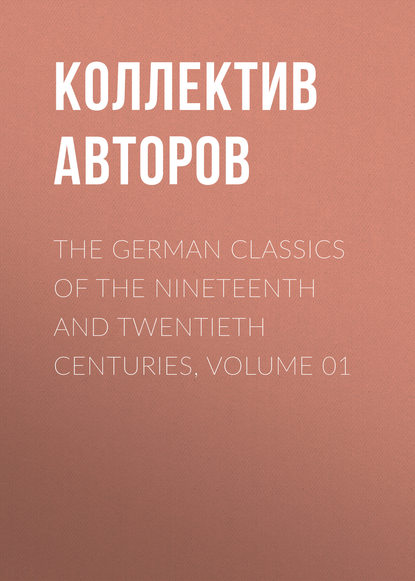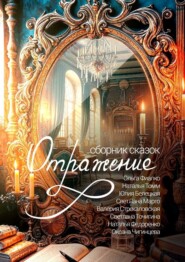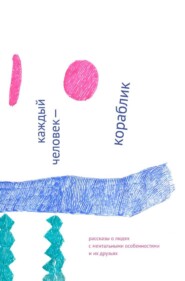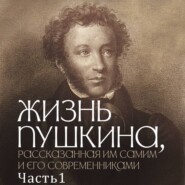По всем вопросам обращайтесь на: info@litportal.ru
(©) 2003-2025.
✖
The German Classics of the Nineteenth and Twentieth Centuries, Volume 01
Настройки чтения
Размер шрифта
Высота строк
Поля
In 1808 he published The Elective Affinities, a novel in which the tragic effects of lawless passion invading the marriage relation were set forth with telling art. Soon after this he began to write a memoir of his life. He was now a European celebrity, the dream of his youth had come true, and he purposed to show in detail how everything had happened; that is, how his literary personality had evolved amid the environing conditions. He conceived himself as a phenomenon to be explained. That he called his memoir Poetry and Truth was perhaps an error of judgment, since the title has been widely misunderstood. For Goethe poetry was not the antithesis of truth, but a higher species of truth—the actuality as seen by the selecting, combining, and harmonizing imagination. In themselves, he would have said, the facts of a man's life are meaningless, chaotic, discordant: it is the poet's office to put them into the crucible of his spirit and give them forth as a significant and harmonious whole. The "poetry" of Goethe's autobiography—by far the best of autobiographies in the German language—must not be taken to imply concealment, perversion, substitution, or anything of that gross kind.
It lies in the very style of the book and is a part of its author's method of self-revelation. That he devotes so much space to the seemingly transient and unimportant love-affairs of his youth is only his way of recognizing that the poet-soul is born of love and nourished by love. He felt that these fleeting amorosities were a part of the natural history of his inner being.
And even in the serene afternoon of his life lovely woman often disturbed his soul, just as in the days of his youth. But the poetic expression of his feeling gradually became less simple and direct: he liked to embroider it with musing reflections and exotic fancies gathered from everywhere. Just as he endeavored with indefatigable eagerness of mind to keep abreast of scientific research, so he tried to assimilate the poetry of all nations. The Greeks and Romans no longer sufficed his omnivorous appetite and his "panoramic ability." When Hammer-Purgstall's German version of the D[=i]w[=a]n of H[=a]f[=i]z came into his hands he at once set about making himself at home in the mental world of the Persian and Arabic poets. Thus arose his Divan (1819), in which he imitated the oriental costume, but not the form. His aim was to reproduce in German verse the peculiar savor of the Orientals, with their unique blend of sensuality, wit, and mystic philosophy. But the feeling—the inner experience—was all his own. The best book of the Divan, the one called Suleika, was inspired by a very real liking for Marianne Willemer, a talented lady who played the love-game with him and actually wrote some of the poems long ascribed to Goethe himself.
At last, in 1824, when he was seventy-five years old, he came back once more to his Faust, the completion of which had long floated before his mind as a duty that he owed to himself and to the world. There was no longer any doubt as to what his great life-work was to be. With admirable energy and with perfect clarity of vision he addressed himself to the gigantic task, the general plan of which and many of the details had been thought out long before. It was finished in the summer of 1831. About sixty years after he had penned the first words of Faust, the disgruntled pessimist at war with life, he took leave of him as a purified soul mounting upward among the saints toward the Ineffable Light, under the mystic guidance of the Eternal-Womanly.
Goethe died March 18, 1832. The story that his last words were "more light" is probably nothing more than a happy invention.
Admirers of the great German see more in him than the author of the various works which have been all too briefly characterized in the preceding sketch. His is a case where, in very truth, the whole is more than the sum of the parts. Goethe is the representative of an epoch. He stands for certain ideals which are not those of the present hour, but which it was of inestimable value to the modern man to have thus nobly worked out and exemplified in practice. Behind and beneath his writings, informing them and giving them their value for posterity, is a wonderful personality which it is a delight and an education to study in the whole process of its evolution. By way of struggle, pain and error, like his own Faust, he arrived at a view of life, in which he found inspiration and inner peace. It is outlined in the verses which he placed before his short poems as a sort of motto:
Wide horizon, eager life,
Busy years of honest strife,
Ever seeking, ever founding,
Never ending, ever rounding,
Guarding tenderly the old,
Taking of the new glad hold,
Pure in purpose, light of heart,
Thus we gain—at least a start.
POEMS
GREETING AND DEPARTURE[4 - Translator: Charles Wharton Stork.] (1771)
My heart throbbed high: to horse, away then!
Swift as a hero to the fight!
Earth in the arms of evening lay then,
And o'er the mountains hung the night,
Now could I see like some huge giant
The haze-enveloped oak-tree rise,
While from the thicket stared defiant
The darkness with its hundred eyes.
The cloud-throned moon from his dominion
Peered drowsily through veils of mist.
The wind with gently-wafting pinion
Gave forth a rustling strange and whist.
With shapes of fear the night was thronging
But all the more my courage glowed;
My soul flamed up in passionate longing
And hot my heart with rapture flowed.
I saw thee; melting rays of pleasure
Streamed o'er me from thy tender glance,
My heart beat only to thy measure,
I drew my breath as in a trance.
The radiant hue of spring caressing
Lay rosy on thy upturned face,
And love—ye gods, how rich the blessing!
I dared not hope to win such grace.
To part—alas what grief in this is!—
In every look thy heart spoke plain.
What ecstasy was in thy kisses!
What changing thrill of joy and pain!
I went. One solace yet to capture,
Thine eyes pursued in sweet distress.
But to be loved, what holy rapture!
To love, ah gods, what happiness!
THE HEATHROSE[5 - Adapted from E.A. Bowring.] (1771)
Once a boy a Rosebud spied,
Heathrose fair and tender,
All array'd in youthful pride,—
Quickly to the spot he hied,
Ravished by her splendor.
Rosebud, rosebud, rosebud red,
Heathrose fair and tender!
Said the boy, "I'll now pick thee
Heathrose fair and tender!"
Rosebud cried "And I'll prick thee,
So thou shalt remember me,
Ne'er will I surrender!"
Rosebud, rosebud, rosebud red,
Heathrose fair and tender!
But the wanton plucked the rose,
Heathrose fair and tender;
Thorns the cruel theft oppose,
Brief the struggle and vain the woes,
She must needs surrender.
Rosebud, rosebud, rosebud red,
Heathrose fair and tender!
MAHOMET'S SONG[6 - Translator: E.A. Bowring. (All poems in this section translated by E.A. Bowring, W.E. Aytoun and Theodore Martin appear by permission of Thomas Y. Crowell & Co.)] (1773)
[This song was intended to be introduced in a dramatic poem entitled Mahomet, the plan of which was not carried out by Goethe. He mentions that it was to have been sung by Ali toward the end of the piece, in honor of his master, Mahomet, shortly before his death, and when at the height of his glory, of which it is typical.]
See the rock-born stream!
Like the gleam
Of a star so bright!
Kindly spirits
High above the clouds
Nourished him while youthful
In the copse between the cliffs.
Young and fresh,
From the clouds he danceth

















